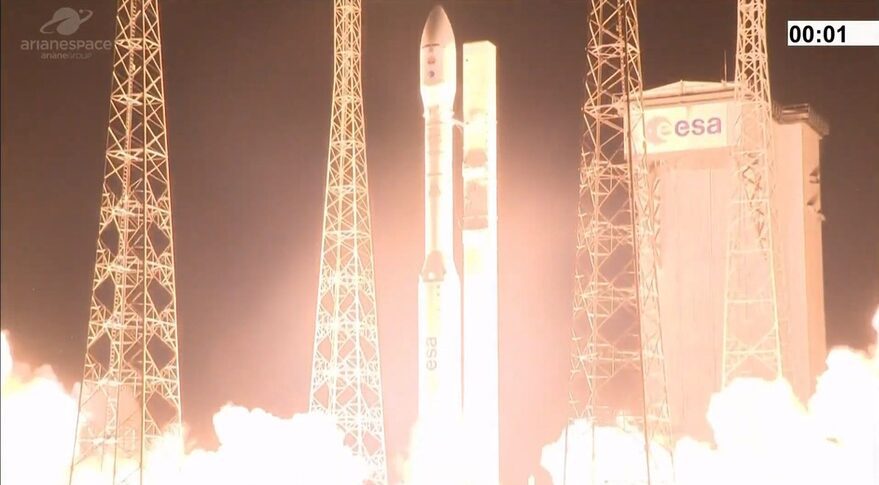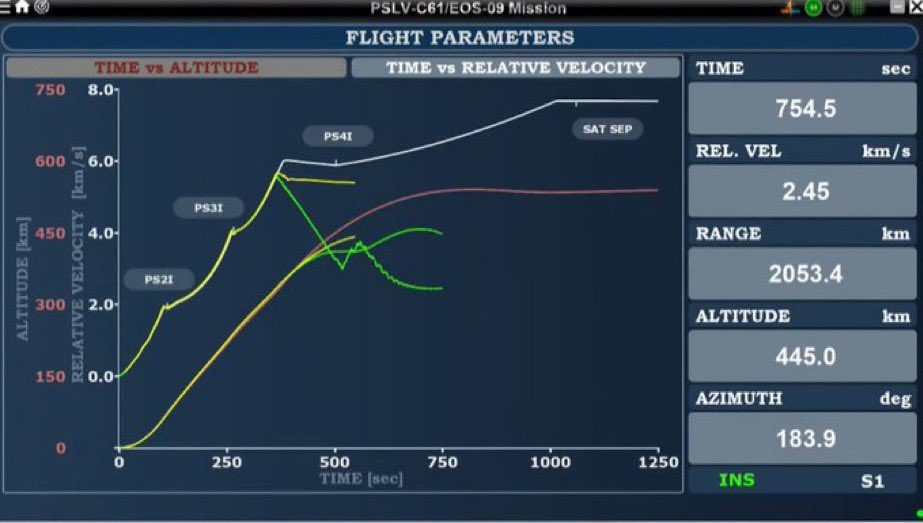The Arianespace light-launcher Vega has suffered another launch failure, despite returning with a successful launch in September after a failure in July 2019. The latest flight, dubbed VV17, initially lifted off successfully from Kourou, French Guiana, at 0152 GMT on 17 November. However, approximately eight minutes into the flight, the mission began to “deviate from its trajectory” due to a loss of direction control and a tumble following ignition of the AVUM upper stage. Orbital velocity was not achieved and both payloads and upper stage are believed to have re-entered near the North Pole.
The loss was confirmed when there was no AOS (Acquisition of Signal) from the ground station in Western Australia an hour after the launch. The two payloads on-board this mission were SEOSAT-Ingenio and TARANIS. The former was a Spanish high-res EO satellite intended for national usage supporting civic and government interests; the latter, a French science mission, designed to study lightning storms in the upper atmosphere. Neither satellite was insured.
Vega was attempting to fly to a circular 670 km, sun-synchronous orbit (SSO) inclined at 98 degrees. A full investigation will take place, but initial indications are that the upper stage started tumbling because cables in the control system were improperly connected. Specifically, cables to two thrust vector control actuators were fitted the wrong way round.
The AVUM upper stage uses an RD-843 rocket engine built by the Ukrainian firm NPO Yuzhnoye.
Comment by David Todd: Vega initially had a very good launch career with no failures. However, the launch failure in July 2019 marred its perfect record, losing the Falcon Eye 1 reconnaissance spacecraft owned by the United Arab Emirates. That satellite was insured and resulted in an insurance loss of US$414.7 million. While this launch’s satellite payloads were not insured, the fact that Vega has had two failures in three flights is likely to raise its premium rate dramatically. Overall, the rocket has failed twice out of 17 launch attempts including one exo-atmospheric suborbital flight.








